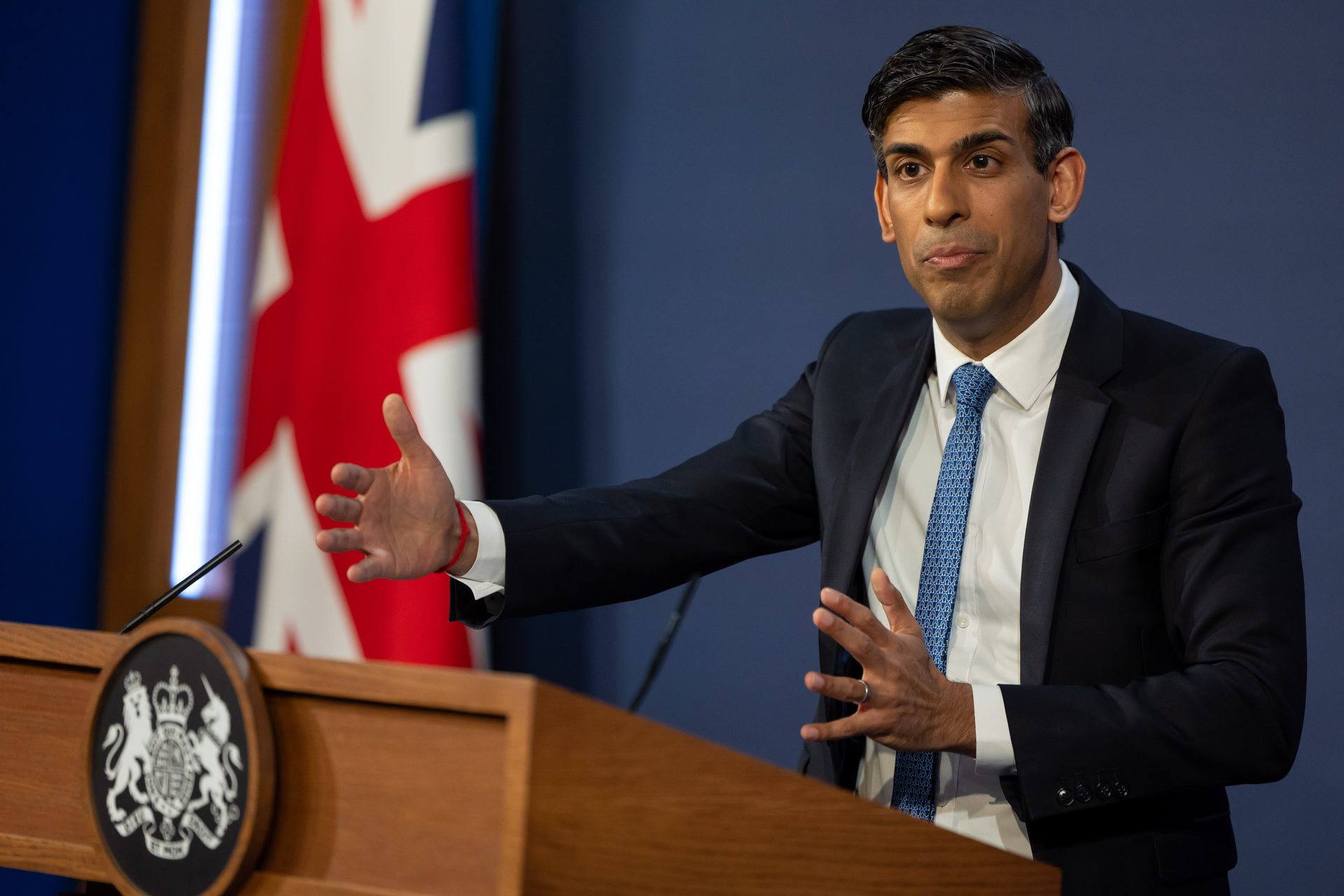BRUSSELS BEHIND THE SCENES
Weekly analysis with Sam Morgan
UK Prime Minister Rishi Sunak’s controversial reversal of some climate policies – both real and fictional – this week will have been duly noted by centre-right politicians on this side of the Channel. They would like to do the same.
Britain has always been somewhat of an unsung trailblazer in climate and energy. One of the first major economies to go big on renewable energy, the UK was also one of the first main players to make a net-zero target legally-binding.
This week’s bizarre climate backtrack by the Conservative government, which most notably involves pushing back a fossil fuel engine phaseout from 2030 to 2035, might also prove to be an avant-garde move by the UK.
Centre-right political forces across Europe have been looking for a way out of committing wholeheartedly to the green transition and Sunak may well have provided them the template or at least the spark to embrace it.
BRUSSELS BEHIND THE SCENES includes weekly analysis not found anywhere else, as Sam Morgan helps you make sense of what is happening in Brussels. If you want to receive Brussels Behind the Scenes straight to your inbox every week, subscribe to the newsletter here.
The UK PM’s weakening of measures designed to help the country meet its legal obligations to reduce greenhouse gases to a net-zero level by 2050 ranged from the damaging to the pure farcical.
A market-leading phaseout date of 2030 has been shifted to five years later, matching the EU’s deadline. Some motor companies welcomed the move, while others – US giant Ford included – put out a very clear statement denouncing the move.
Policies designed to improve the UK’s incredibly leaky and energy-inefficient housing stock have also been gutted, while other plans for meat taxes and airplane levies – which were entirely made up – have also been axed.
This is all in the name of appealing to an increasingly loud minority of the public who do not see the value of decoupling the economy from a volatile fossil fuel system, which has proved itself time and time again to be unreliable, expensive and destructive.
Politicians have been warned constantly over the last decade that they must win the money argument linked to climate change. That large upfront costs will be needed but that the payback will be immense.
Failure to do anything – the infamous 'cost of inaction' – will far outstrip investment costs now if policies are not enacted.
It is a trend that is not reserved for the North Sea Brexit archipelago either. Mainly rightwing political groups across Europe are attempting to bolster their election chances in national polls and next year’s EU ballot by banging this drum.
Recent examples of ambitious European rules being watered down and even attempts to kill them completely – see the nature restoration law, clean energy rules and new car engine standards – show where the mood has changed.
European Commission President Ursula von der Leyen went big on industry in her annual speech and is focusing on culture wars like killing large predators and enacting stricter migration policies rather than protecting the Green Deal.
EPP chief Manfred Weber has even admitted that his group’s attempts to dilute environmental protections and cultivate more rural votes will be easier now that climate boss Frans Timmermans has left Brussels to run in the Netherlands’ upcoming elections.
Rishi Sunak’s climate arson is of course the act of a desperate man who knows that his card is marked. Public opinion, especially in the UK, is firmly in favour of more ambition, not less. But that does not mean it won’t have a wider impact.
His government will be hard-pressed to follow through on what he has announced, given that the UK has a fairly robust emissions governance system that is set by mandatory carbon budgets.
Set periods of time are allocated only a certain amount of emissions, meaning that if more petrol and diesel cars stay on the roads because of the new policy, extra emissions will need to be cut elsewhere.
Legal action will follow if budgets are not met without good reason. Parliament could change the rules of course, but there will need to be public will to do that. As already explained, there is not any.
Here is where the damage can be done. If the rightwing across Europe is emboldened by what they have seen in the UK and lead a fire sale on EU rules, there is less of a safety net than in Britain.
The EU has a legally-enforced 2050 target and the 2030 benchmark is also set in stone. But there is not the same carbon budget system as in the UK. Effort sharing rules and the carbon market do some of the work but there is more wiggle-room to diverge. Talks on a 2040 goal have not got serious yet and could be curtailed by the current mood.
Even if politicians do not go after the big ticket items like overall targets or headline-grabbers like renewable energy or transport emissions, there is still plenty of low-hanging fruit like biodiversity protections and air quality rules that could be in their sights.
It is an extremely delicate time for everything linked to the Green Deal. Europeans were worried that ‘Brexit contagion’ might prove infectious but that did not come to anything in the end.
Climate hunting, on the other hand, might.
BRUSSELS BEHIND THE SCENES includes weekly analysis not found anywhere else, as Sam Morgan helps you make sense of what is happening in Brussels. If you want to receive Brussels Behind the Scenes straight to your inbox every week, subscribe to the newsletter here.

